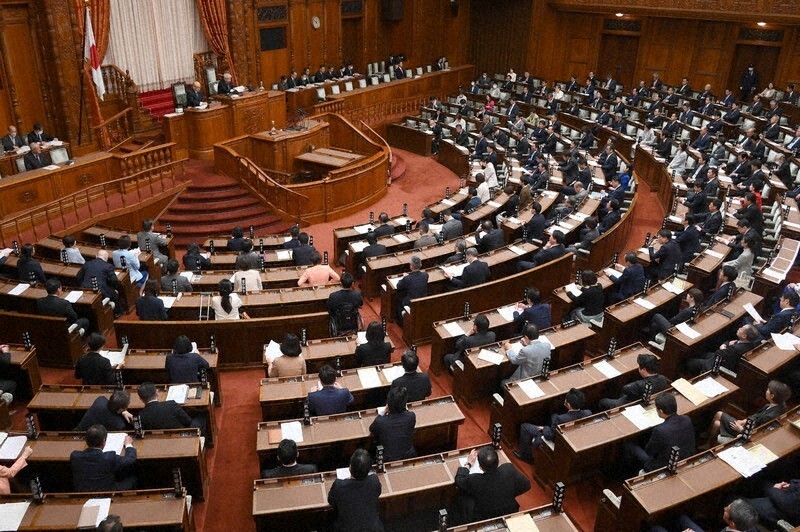
Shifting Political Landscapes in Japan
Recent political developments in Japan have highlighted a significant shift in the country's electoral dynamics. The latest House of Councillors election revealed a decline in support for the ruling coalition, which includes the Liberal Democratic Party (LDP) and Komeito. This outcome has sparked discussions about the end of an era defined by the LDP's long-standing dominance in Japanese politics.
One of the central issues that emerged during the campaign was the rising cost of living. Voters were concerned about their financial stability, with no signs of relief in sight. The question became whether the political parties offered viable solutions to address these concerns.
The opposition parties proposed reducing the consumption tax as a way to ease the burden on citizens. While this measure might provide temporary relief, it raises questions about its long-term effectiveness. Critics argue that such a move could lead to increased government debt and potential cuts in social security programs.
In contrast, the LDP focused on distributing cash handouts to all residents. This approach aims to provide immediate financial support, but it also raises concerns about fiscal sustainability. However, the LDP benefits from the backing of the Ministry of Finance, which gives it a strategic advantage in implementing such policies.
Despite expectations that the ruling bloc would have an edge in a pork-barrel contest, the opposition emerged victorious. This result reflects a growing dissatisfaction with the LDP, which goes beyond policy disagreements. The party's image as a governing force has been increasingly challenged, particularly after the start of the upper house election campaign.
Historically, the LDP maintained power by catering to the interests of various groups and local communities. After the Cold War, the party faced pressure from international demands, leading to a shift in its coalition strategy. However, it managed to retain its influence through careful maneuvering.
The LDP's focus on maintaining its ruling status led to the institutionalization of its internal structure. This process reduced internal conflicts and allowed for the distribution of key positions among faction leaders. However, this rigidity also contributed to the party's inability to adapt to changing circumstances.
This lack of flexibility became evident in the LDP's slush fund scandal, where faction fundraising events were criticized for unfair practices. Despite public backlash, the party prioritized internal stability over addressing the issue. Additionally, the LDP delayed a review of corporate donations to political parties, further damaging its reputation.
Organizations must evolve to survive, and the LDP is facing challenges in this regard. Prime Minister Shigeru Ishiba's administration remained in power despite low approval ratings, partly because there were no clear alternatives. This situation highlights the party's struggle to reinvent itself and maintain relevance.
On the other side of the political spectrum, the opposition party Sanseito experienced a growth in seats, signaling a new chapter in Japanese politics. The country's political landscape, marked by instability, is entering a period of transformation. To navigate this change, there is a need for forward-looking visions that can guide the nation.
The future of Japanese politics should not be driven by populism that stirs up anxiety. Instead, it requires a focus on creating hope and fostering a sense of shared purpose. As the political landscape continues to evolve, the emphasis should be on building a system that addresses the needs of all citizens.
